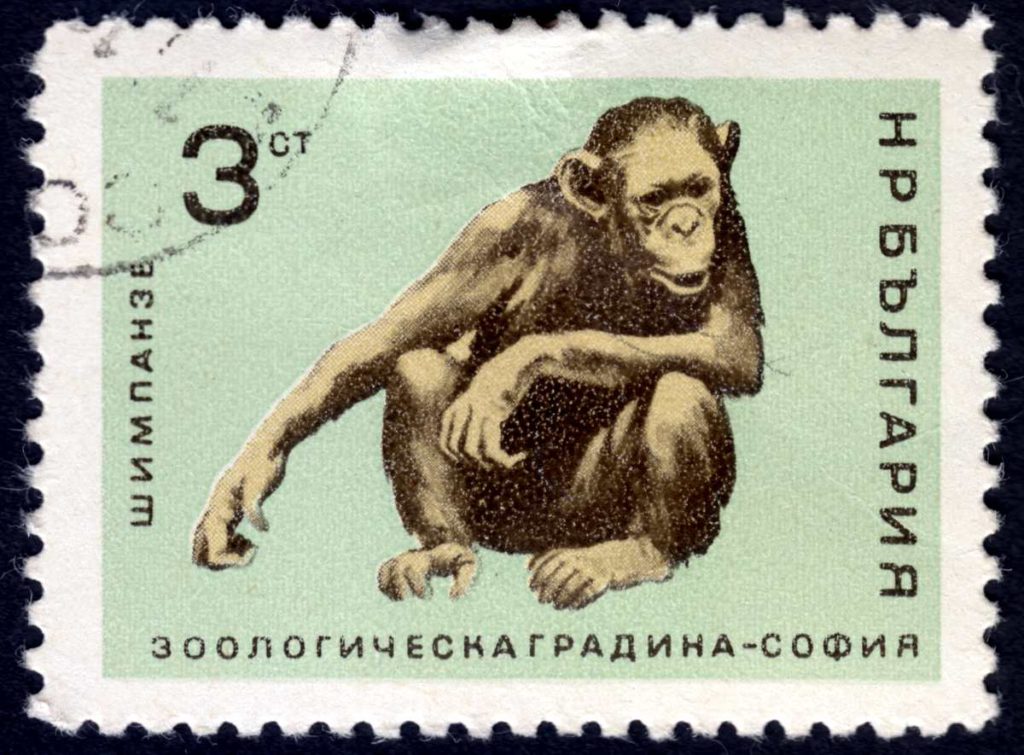Bulgaria, located in Eastern Europe between Romania and Greece, has issued its own postage stamps continuously since 1879. At first as a part of the Ottoman Empire, and then as an independent country, Bulgarian stamps today include many collectible items intended to attract the attention of philatelists worldwide. Until 1908, Bulgarian stamps came at a time when the country was technically independent from the Ottomans, but still de facto under their rule. In 1908, real independence was finally achieved.
First Bulgarian stamps of 1879
The first issue of Bulgarian postage stamps in 1879 showed the Bulgarian lion, a symbol which would appear on many of Bulgaria’s stamps in the coming decades. These stamps used only Bulgarian, written in the Cyrillic alphabet — БЪЛГАРСКА ПОЩА (“Bulgarska Poshta“, Bulgarian Post) and the value. Values for this 1879 version of Bulgaria stamps were in centimes (5c, 10c, 25c, and 50c); there was also a 1 franc stamp (САНТИМ is centime; ФРАНКЪ is franc — the words are written out on these early stamps). English would not be used for several decades on Bulgarian stamps, so collectors must familiarize themselves with the basics of the Cyrillic alphabet.
More on MegaMinistore: Posta Romana Stamps of Romania: Collecting Lei and Bani
Lev and stotinki, 1881
In 1881, Bulgaria began using a new currency system of 1 lev = 100 stotinki. When written out, as they have been on many stamps, lev (singular) and leva (plural) are rendered as ЛЕВ and ЛЕВА respectively; stotinka (singular) and stotinki (plural) as СТОТИНКА and СТОТИНКИ. Note that stylized typefaces can transform these characters on some stamps, for example turning the Cyrillic С into what looks like a Roman S.
Bulgarian and English on Bulgaria’s postage stamps
For many years, the English word BULGARIA rarely, if ever, appeared on Bulgarian postage stamps. In the 1940s there were a few stamps that included this English, but it wouldn’t become a regular feature until later. Some of the stamps of this era that did include English used N.R. BULGARIA; this comes from Narodna Republika Bulgaria, a transliteration of the Bulgarian phrase Народна република България, or the People’s Republic of Bulgaria (the official name of the country until 1990). This abbreviation was rendered on stamps in Cyrillic too, as Н Р БЪЛГАРИЯ. By the late 1960s, the N.R. and Н Р parts were often dropped; it is this version that modern Bulgarian stamps use: BULGARIA in English and БЪЛГАРИЯ in Cyrillic.
See also: Poland rare stamps: buying and collecting Poczta Polska
Some Bulgarian postage stamps in 1937 and 1938 added the French version, BULGARIE.
Bulgarian philately collectibles today
In 1990 the country shortened its name to the Republic of Bulgaria. Modern Bulgarian stamps also have come in a variety of interesting collectibles, aimed at the international market. Maximum cards and first day covers are available, as are special subcategories of collectible Bulgarian stamps such as souvenir sheets, stamp blocks, unhinged MNH pieces, joint issues, newspaper stamps, semi-postals, revenue stamps, et cetera.
The Bulgarian postage stamp for sale section is usually booming, and there are a ton of interesting items for sale. Keep an eye out for new listings here every day. Check the subcategories for specific types of stamps from the Republic of Bulgaria.










